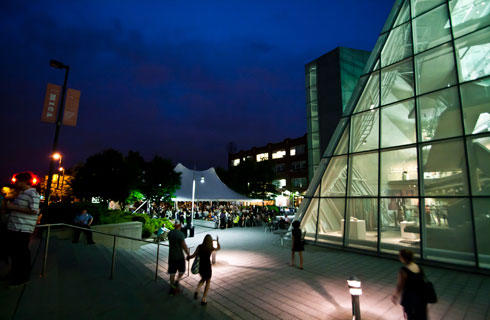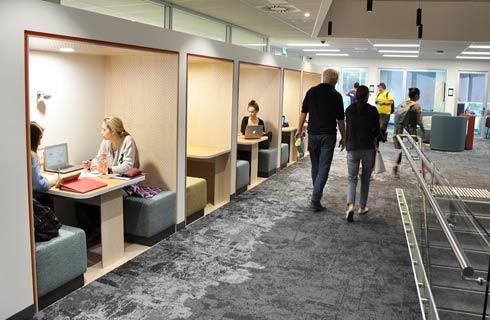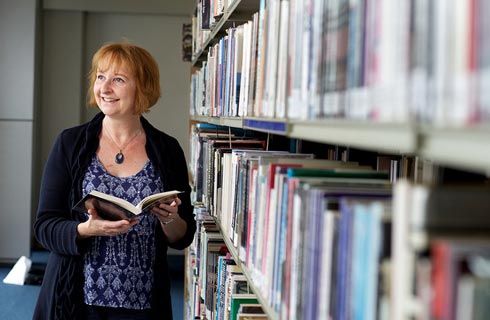理学学士(荣誉)音乐学士学位
BSc (Hons) Acoustics with Music

学历文凭
Bachelor Degree with Honours

专业院系
Acoustical Engineering

开学时间

课程时长

课程学费

国际学生入学条件
AAB including mathematics (minimum grade A), an additional science-related subject (minimum grade A) and music (minimum grade B)*. Grade 8 in music practical or demonstrated equivalent standard** is also required for applicants wishing to pursue a performance component in music.
A-levels additional information
Acceptable science-related subjects include chemistry, electronics, further mathematics and physics. Pass in the associated science Practical is required where applicable. Offers typically exclude General Studies and Critical Thinking. * We can accept a pass in Grade 6 Music Theory where Music is not studied as a Level 3 qualification. We do not accept Music Technology in lieu of a Music Level 3 qualification (A level, BTEC etc). **Equivalence to grade 8 is ascertained via an audition. This can be done in person or by sending a video.We recognise Music practical and theory exams from ABRSM, Trinity, Rockschool and LCM.
International Baccalaureate Diploma
Pass, with 34 points overall with 17 points at Higher Level, including 6 at Higher Level in Mathematics: Analysis and Approaches or 7 at Higher Level in Mathematics: Applications and Interpretation,6 at Higher Level in Physics or Chemistry and 5 at Higher Level in music*.
International Baccalaureate Diploma additional information
*We can accept a pass in Grade 6 Music Theory where Music is not studied as a Level 3 qualification. We do not accept Music Technology in lieu of a Music Level 3 qualification (A level, BTEC etc).**Equivalence to grade 8 is ascertained via an audition. This can be done in person or by sending a video.We recognise Music practical and theory exams from ABRSM, Trinity, Rockschool and LCM.
BTEC
Additional information
Accepted science-related subjects include chemistry, electronics, further mathematics and physics. Pass in the associated science Practical is required where applicable. Offers typically exclude General Studies and Critical Thinking. *We can accept a pass in Grade 6 Music Theory where Music is not studied as a Level 3 qualification. We do not accept Music Technology in lieu of a Music Level 3 qualification (A level, BTEC etc).**Equivalence to grade 8 is ascertained via an audition. This can be done in person or by sending a video.We recognise Music practical and theory exams from ABRSM, Trinity, Rockschool and LCM.
GCSE requirements
Applicants must hold GCSE English language (or GCSE English) (minimum grade 4/C) and mathematics (minimum grade 4/C)
IELTS 6.5 overall, with a minimum of 5.5 in all components, TOEFL iB (Test of English as a Foreign Language) - 92
IDP—雅思考试联合主办方

雅思考试总分
6.5
了解更多
雅思考试指南
- 雅思总分:6.5
- 托福网考总分:92
- 托福笔试总分:160
- 其他语言考试:Pearson Test of English (PTE) Academic - 68
CRICOS代码: HW73
申请截止日期: 请与IDP顾问联系以获取详细信息。
课程简介
Learn to hear music in a new way, and discover how sound and vibration can affect us and the world around. This Acoustics with Music degree combines musical composition and critical analysis with acoustical engineering. Whether you sing opera, play guitar solos or make electronic dance music, we'll help you develop. <br>This degree provides a broad-based education in sound, hearing and technology as well as musical engineering, theory and performance. The modular nature of the course means you'll choose how you balance Acoustical Engineering and Music modules. <br>You'll use our extensive Music facilities, including: dedicated rehearsal rooms, ensemble practice spaces, electronic studios, networked multimedia workstations.<br>You'll study Acoustics at the Institute of Sound and Vibration Research, a leading centre for Acoustical Engineering. You'll use our world-class acoustic and engineering facilities, which include:<br>anechoic and reverberation chambers, an aeroacoustic wind tunnel, a virtual acoustics laboratory, a professional manufacturing centre.<br>You'll also study hearing. You'll develop your understanding of how hearing works, for example the anatomy and physiology of the ear. You'll study how we perceive sound, how the brain interprets information from the ears, including how hearing impairment affects the perception of sound and music. We need to understand the acoustics of how sound is produced by instruments and how the hearing system picks up and interprets sound information, to fully understand music perception. This degree will develop your understanding of both aspects of music perception. In your final year you can choose to study modules in either acoustics, music or hearing. This will help you to develop specialisms for your career or further study.
相关申请
 预科
预科 奖学金
奖学金 实习机会
实习机会 在校学习
在校学习 跨境学习
跨境学习 校园授课-线上开始
校园授课-线上开始 在线/远程学习
在线/远程学习
学校排名

世界排名118
数据源:泰晤士高等教育世界大学排名
关于南安普顿大学

南安普顿大学在2023年QS世界大学排名中名列第78位,它在英国的大学中排名前15位(《2023年完全大学指南》)。南安普顿大学是著名的研究密集型大学联盟罗素集团的创始成员之一。南安普顿大学为学生提供了300多门学位课程。它每年还提供约400个实习机会,帮助学生获得充分的实践机会。该大学聘请了杰出的讲师,他们往往是其专业领域的领导者,确保学生了解最新的研究发展。作为一所具有广阔前景和以学生为中心的全球性大学,来自130多个国家和地区的1万多名国际学生在该大学学习。根据2022年全国学生调查,82%的学生对其课程教学感到满意。该大学对校内设施进行了投资。该机构还提供获奖的学习中心和职业支持服务。南安普顿的研究人员在不同的校内研究机构从事着有影响力的研究工作。像RJ-米切尔风洞和高压实验室这样的尖端设施表明,该大学投资于人员和服务,使他们受益。国际学生可以获得负担得起的舒适住宿,也可以从其他服务中受益,满足他们的安全和福祉,如24小时保安和包括南安普顿大学住宿的UniLink公交卡。南安普顿大学有300多个不同的学生团体,代表了多种多样的兴趣爱好。这包括40个不同的表演艺术团体和90多个体育俱乐部,优秀的学生有机会代表南安普顿参加大学间的比赛。
本校相关课程

综合博士学位应用语言学/英语教学
学历文凭
Ph.D.
开学日期
课程费用总额


工学(荣誉)船科学
学历文凭
Undergraduate Masters
开学日期
课程费用总额


平面艺术学士(荣誉)学位
学历文凭
Bachelor Degree with Honours
开学日期
课程费用总额


机械(荣誉)机械工程/可持续能源系统
学历文凭
Undergraduate Masters
开学日期
课程费用总额


工学(荣誉)机械工程/海军工程
学历文凭
Undergraduate Masters
开学日期
课程费用总额


工学士(荣誉)机械工程/机电一体化
学历文凭
Undergraduate Masters
开学日期
课程费用总额

其他相关课程

Diploma of Arts (Music Production) (12 Units)
Collarts
学历文凭
Diploma
开学日期
课程费用总额


MA Music
 爱丁堡龙比亚大学
爱丁堡龙比亚大学泰晤士高等教育世界大学排名:501
学历文凭
Masters Degree (Taught)
开学日期
课程费用总额


戏剧和表演实践文学硕士
 爱尔兰国立科克大学
爱尔兰国立科克大学泰晤士高等教育世界大学排名:301
学历文凭
Masters Degree (Taught)
开学日期
课程费用总额


Master of Arts in Acting (International)
 埃塞克斯大学
埃塞克斯大学泰晤士高等教育世界大学排名:301
学历文凭
Masters Degree (Taught)
开学日期
课程费用总额


BA Music and South Asian Studies
伦敦大学亚非学院
泰晤士高等教育世界大学排名:401
学历文凭
Bachelor Degree
开学日期
课程费用总额


MMus in Music
 赫尔大学
赫尔大学学历文凭
Masters Degree (Taught)
开学日期
课程费用总额


























